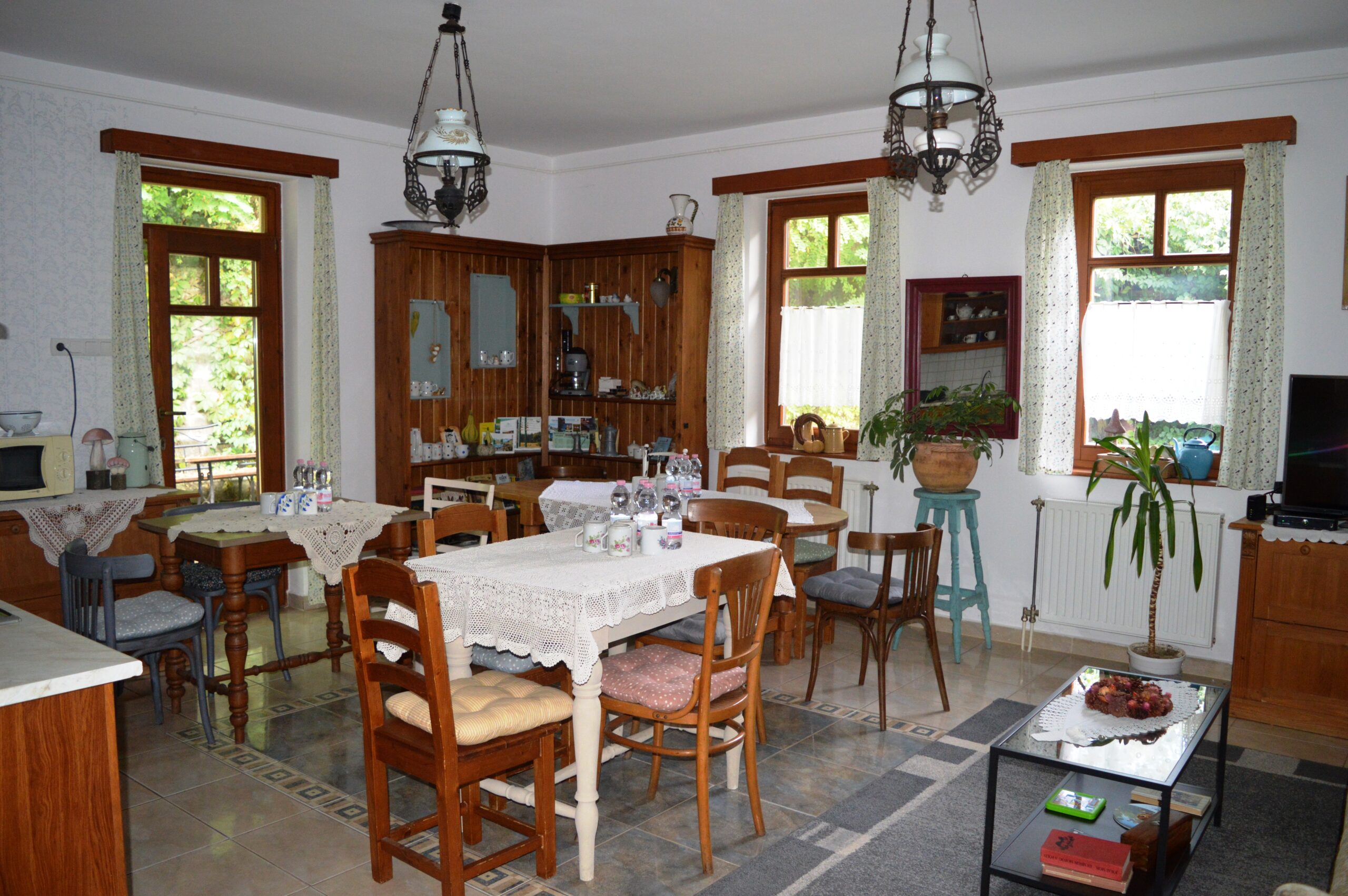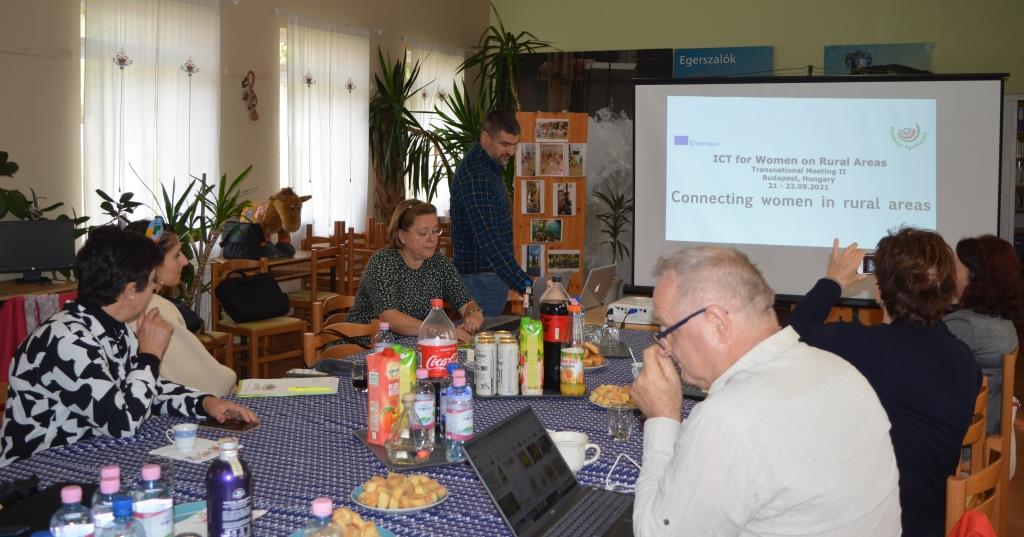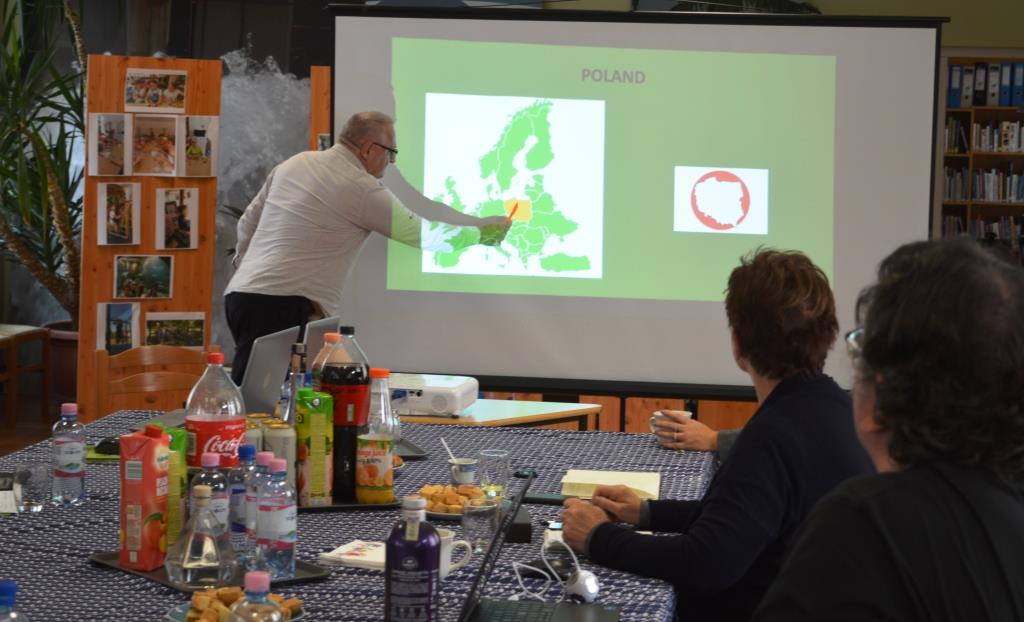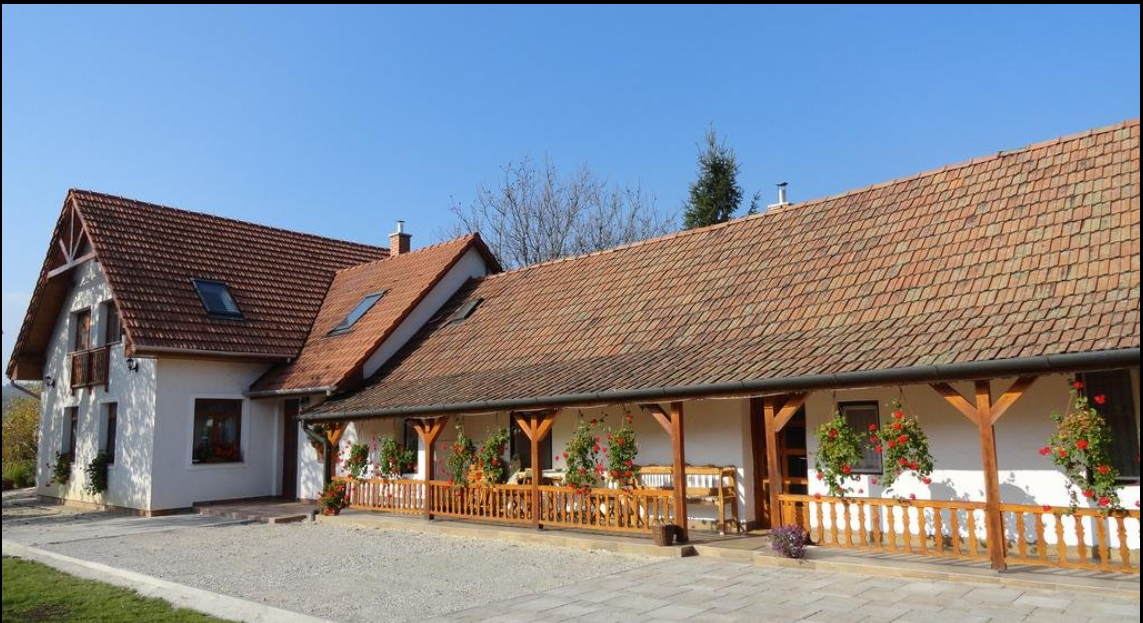
ICT women on Rural Areas – the second transnational meeting of the Erasmus+ project in Hungary
The second transnational meeting of the WORA project, ICT for Women in Rural Areas financed by Erasmus+ took place in Hungary between September 21-22, 2021. Representatives of three organizations: AgriNatura Foundation from Poland, Kisleptek from Hungary and EcoRuralis from Romania, met in Budapest and in Egerszalók. AMA Centar from Serbia had to cancel in last minute due to a Covid infection of the attendee.
In the morning of the first day it was the project administration time, partners revised the status of the project, discussed the Vademacum works, decided on having webinars sessions in the coming months and also revised the dissemination and valuation of the project.

And then in the afternoon partners travelled to Egerszalók, a small village in the Bükk mountains with 2000 inhabitants.
The village is famous of its terraced limestone formation created by medicinal water with 60°C thermal indoor and outdoor baths.

The accommodation of the partners were at Ambitus Guest House (https://ambitushaz.hu/) run by Judit Bíros.
The design of the guest house is sophisticated and stylish. Many old handicrafts and ornaments and furniture make the accommodation unique and authentic by preserving cultural values, at the same time with maximum comfort and order.

Judit explained us that she several times searches for antiques with the help of online space and computer technology: looking for garage fair advertisements, Facebook entries of antique give-and-take groups, and portals specializing, e.g. www.jofogas.hu, www.galeriasavaria.hu. Judit registered for several booking registration, she proudly showed us that her guest house in ranked at booking.com with 9.8. She uses her telephone for mailing, for the national accommodation registration and also to issue invoice.

After the group occupied their rooms, they went to the Village House where our host Szilvia Farkasné Uzelman on behalf of Egerszalók Tourism Association and Valley of S%pas TDM Association waited us. We were welcomed by István Varga, mayor of Egerszalók and introduced their settlement.

Then Béla Gyurkó vice president of the National Federation of Rural and Agro Tourism (FATOSZ – https://falusiturizmus.eu/en/about-us/). Béla introduced FATOSZ, is an interest representing nationwide alliance of the county agro touristic service provider associations. The alliance and the county associations are supporting their members with a common website (https://falusiturizmus.eu/en/) which provide accommodation booking services and information of members. They have developed the sunflower collective/guarantee trademark which is classification system for agro touristic service providers, rural accommodation and guest houses and they make the classification for these accommodations. It was a new challenge for the agro touristic service providers that in January 2020 it became mandatory for all accommodations to use accommodation management software which is operated and managed by the National Tourist Information Center (NTIC, in Hungarian NTAK). Accommodations had to register to the NTIC system and any it may only be advertised on any online accommodation intermediary interface (Airbnb, Accommodation.com, Booking, etc.) if its NTIC registration number and type are indicated. Béla also runs a guest house in the neighbouring village, in Demjén.

On the second day Szilvia introduced their local association pointing out to the excellent attractions of the region, the mountains with several touristic routes, the medical-mineral waters and the baths, the closeness of famous historical city called Eger. In Egerszalók there are four four-star hotels, three pensions, 120 guest houses and is one camping. The Egeszalók Tourism Association has 70 members of which 80 % (!) are women, while the Valley of Spas TDM Association (operates in three villages in the surroundings (Egerszalók-Demjén-Egerszólát). Their members are municipality, enterprises, and civil organisations. They operate the Egerszalók Tourinform Office which is a multi-functional space with local product shop, sightseeing minibus service, program organisation, bike rental, doll museum. Their homepage http://www.gyogyvizekvolgye.hu/en/) is available in four languages, they have Facebook and Instagram page by which the serve the marketing of their members.

Marianna Cvzack, vice president of Heves county branch of FATOSZ introduced their activity in Heves county. They have 130 members in 130 settlements of which 80 % are women, while half of them are over 60 years. That is why one of the prior task to support the practical digital knowledge transfer in addition to professional knowledge transfer.
The commonly use portals for accommodation booking are:
• Szallas.hu
• Booking.com
• Facebook
• own website
• airbnb
• other statical booking site.
Covid increased the need for online communication, to use smart phones with mobile applications. There is a simplified taxation up to 8 room (16 persons), which is HUF 38.400 HUF/year/room, while VAT is still a problem since it is 27 % to be paid after the annual turnover of 12 million HUF. In the past years several guest hose could be remodelled and renovated with the support of Kisfaludy Accommodation Development Program.

Thereafter the partners introduced themselves, first the Polish group. Krzysztof Magdziak & Agnieszka Drelich Magdziak are working on a one hectare land breeding goats and produce cheese. Their mission is to provide experiences to the participants of their programs which presents rural life and values, to organise meeting points, to promote collaborations, to organize the community. They said that one of the obstacles in the rural areas is the lack of driving licences since long distance make people isolated. Despite they were presented several persons in their community who are connected and communicated by the use of internet, either using it for selling their handicraft goods or processed food, such as cheese, or using social media by writing blogs.

Waldemar Fortuna was talking about the bio dynamic agro ecology in Poland and how IT may support it. (www.learningonbiofarm.eu)

Tomasz Wloszczowski introduced WORA project and the activity of Fundacja AgriNatura. He emphasised that the proper use of computer technology and online presence and skills helps to combat rural isolation, especially of women raising children on the farm, which became important during COVID. It helps with administration and communication, so with small rural businesses and service providers. For this reason, one has to motivate the project for IT use, for rural women. He then introduced their certification system which they prepared for the ecotourism places associated with the ecotourism network http://www.bugnarew.pl/. We also learned that in Poland the farmers who run the agrotourism up to five rooms in their farms do not have to pay the income tax from that activity.

Raluca Dan was talking about Eco-Ruralis: this is a pheasant movement part of the Via Campesina movement, having 14.000 members, of which 80 % are having land around one hectare. Most of them are household gardener and only part of them are selling for market. Then Carmen Moldoveanu, one of their members introduces her guest house. https://pensiunea-albinuta.business.site. The classification of the accommodation is “Agro Touristic Point” which enables her not only offer accommodation but catering and other programmes. The capacity of her apartment is three rooms with 8 beds. They are farming also in the premise, i.e. apiary and growing vegetables on half a hectare.

After lunch there was a tour within the village visiting the terraced limestone formation. Watch a time machine video on the history of the village. Thereafter they visited cave apartments which were created in the 17th century which by now were converted to museum and decorated with the help of the people of Egerszalók, who donated old furniture and equipment.


In the afternoon partners visited two more gust houses, where the owners explained their activity and showed their guest house: Gerendás Vendégház and Zöldbiciklis Ház.

















